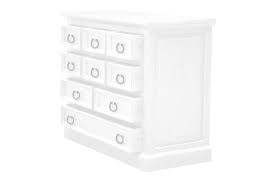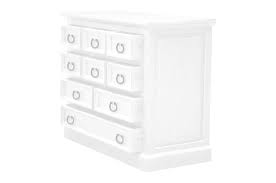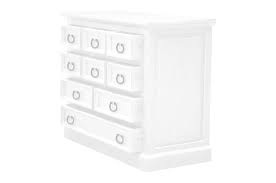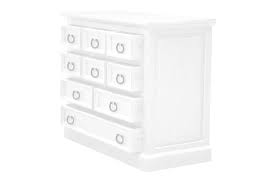Getting a filling should improve the health and comfort of your mouth, not make them worse. A mandibular block injection (inferior alveolar nerve block) is the most common injection used to numb up lower back teeth (molars, premolars).

Nose threading is the latest way to achieve a nonsurgical
Nobody wants to feel pain and these days, patients are no longer willing to accept it like they may have in years gone by.

Do fillings hurt with an injection. Remember, a filling doesn’t hurt — even a root canal doesn’t hurt — but an intraoral injection does! When to call your dentist. The dentist will use an injection of local anesthetic to make sure you don’t feel a thing while they’re working on your tooth.
The palatal injection is most painful, under the top front lip can hurt and third is called the lower mandibular block. Your dentist can adjust the filling so that it fits better. It’s an extra precaution to ensure that you don’t experience any pain from a filling.
Do the injections to front of mouth hurt (i have heard many horror stories). For upper back teeth, the injection is way up high on the cheek side of the jaw, where tissues are freely movable and loose. They should not, although you can expect some tenderness and soreness during the first few days after you get a tooth filled.
If you were totally fine right after treatment. If this discomfort persists past one week after treatment, you should call your dentist about coming in to possibly adjust your filling. The answer to all your questions is:
Before getting to work, your dentist will test that you can’t feel anything other than a slight bit of pressure. While you might feel a bit of pressure or be aware of where the dentist is working, you won’t feel pain during the procedure. This results in pain, followed by soreness.
How does a dentist fill a cavity? Local anaesthetic is usually administered by injection and it only causes the area that needs to be worked on to lose sensation. The lifetime of a dental filling can also vary depending on the materials chosen.
Thankfully, with dentalvibe, it doesn’t have to hurt anymore. This type of injection tends to be painless regardless. Cavity fillings shouldn't hurt beyond some soreness and tenderness for the first couple of days following treatment.
Getting early treatment is essential to. Dental fillings are typically applied after the root canal process to protect your tooth from bacterial infection. Do fillings hurt without an injection?
Sometimes people do, however, feel an ache from the injection or the procedure after the anesthetic wears off. Fillings should not hurt after being placed, but you can experience some tenderness and soreness during the first few days after the procedure. If you're worried it's still going to hurt, ask the doctor or nurse to apply a numbing cream to the injection site.
How do they fill your front teeth? However, in rare cases, dentists may sometimes leave a portion of the pulp inside the tooth. But if you hurt the patient during the injection process, you are no longer considered a painless dentist.
Also, try not to tighten your muscles during the injection since that can make it hurt. Fillings work by replacing the part of. That said, pain is possible.
Lower canines and incisors can also be numbed up using a mandibular block. Then they pull out your teeth/screw them on/apply fillings/deapply fillings/etc. Some dental fillings last longer than others but taking care of them is still very important.
Do fillings hurt without an injection? Hi, i've to get a couple of fillings done to my front teeth. Before getting to work, your dentist will apply local anaesthetic to the area to be worked on.
Fillings don’t hurt as much as tooth ache. Dental fillings can hurt in some instances. First they put on some orange paste to numb your gums, then they numb your gums even more with an injection.
They will drill the tooth first which can be a bit unnerving but mainly because of the vibrations and the feeling that they’re about to hit a nerve. It's a good idea to call your dentist if. Remember, a filling doesn’t hurt — even a root canal doesn’t hurt — but an intraoral injection does!
Fillings are applied on the tooth, and the pain becomes prominent after a few days. Modern dental procedures, especially those that involve drilling into a tooth, involve the use of an anaesthetic injection, so it would be very unusual for you to have a filling done without some kind of numbing agent. If you do feel pain and is more than you can ignore, let the dentist know.
They will give you an injection which will numb the area. I have heard that these types of injection really sting (for a start). Give your patients the “wow experience” with this injection system, and you both will enjoy the dental visit a little bit more.
It is a good idea to call your dentist if that discomfort persists for more than a week. Fillings should improve your mouth’s comfort and health rather than make things worse. Is this work more complex than other fillings.
During filling procedures, dentists clean away the decay inside the cavity, usually with a drill, before filling it in. Still worried about do dental fillings hurt? Closest to pain you should get past the injection is an aching jaw from having it open so long and some feelings of dull pressure from the drilling.
They numbed em with paste earlier so you'll barely notice. Remember, a filling doesn’t hurt — even a root canal doesn’t hurt — but an intraoral injection does! I am really beginning to get all worked.
In other places, such as the palate, tissues are denser. And while many people are not fond of needles, especially ones that have to go inside their mouths, a skilled dentist will be able to administer the injection in such a way to minimize any pain or discomfort. That is a riskier one for pain because the dentist has to inject through muscle;
Suggested clip · 43 seconds. But most cause little to no discomfort during the procedure. This is usually administered by injection and will ensure your soft tissue is numb to the tough.
If you’re avoiding your dental checkup over concerns about pain, take a deep breath, and. Remember, a filling doesn’t hurt — even a root canal doesn’t hurt — but an intraoral injection does! Also in this area a couple of nerves are outside the jaw bone and the patient can receive an electric shock that is pretty painful if the needle accidentally touches one of those nerves.
And the purpose of this injection includes numbing up the lingual nerve (the nerve that runs to the tongue, thus numbing it). Although you can expect some tenderness and soreness during the first few days after you get a tooth filled, they shouldn't. This failure usually ends with the spread of infection.

Pin by Nick Poulopoulos on random Hoodie shirt, T shirt

LIKE SHOP 50pcs UPick Disposable Tattoo Needle and Tube 5

Dental Blocks 👉 Akinosi Block⠀ 👉 GowGates

Pin by YoDonna Collins on Sweet Shots (With images

“Shot him in the belly, so he died real slow. You know

Frankincense neurological support Applied to bottoms

Pin by Cathy Barrera on Dog Life Dog life, Dogs, Getting old

HealthyTeeth OralCare PearlDentalCare Healthy teeth

Dental Health Care During a routine dental visit, the

The lightwalker fotona laser uses Erbium Yag laser energy

All About Under Eye Filler Restylane & Restylane Lyft

Recovery of Impingement Syndrome Bursitis shoulder

Details about BEST Lip Plumper Filler Enlargement Enlarger

9 Things I Wish I Knew Before Getting Lip Injections (With

Composite tray. (White filling). dental dentalassisting







